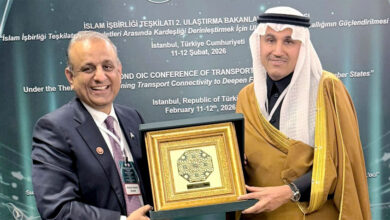India’s anxiety towards Chinese BRI
By Aurangzeb alamgir
The Belt and Road initiative since it was first proposed has been an open and inclusive initiative for all countries and organizations interested in this. The purpose of this initiative is totally for betterment of the countries and region. In case any country does not want to join there is no compulsion. China has initiated the BRI to get access to the untapped markets and uninterrupted flow of energy resource. Regarding energy security, China is very curious because of the dominance of American around the Middle East. Along with it, the US has a strong hold on the main sea lanes of communication of the Indian and Pacific Oceans. This, of course a dilemma for Beijing.
The China Pakistan Economic Corridor is known as flagship project of Chinese Belt and Road Initiative (BRI) and with Imran Khan’s visit to China in November last year the project is gaining new heights. The newly elected government in Pakistan has a vision to broaden the scope and level of CPEC development projects. Agriculture, livestock, and socio economic development are also included in CPEC projects. According to leading experts on geopolitics and geo-economic, CPEC is a game changer project for South Asia. It will change the geopolitical as well as geostrategic landscape of South Asia and China will emerge as a stakeholder in Indian Ocean Region. It will ultimately hurt the balancee of power in the region especially it will clear challenge for Indian hegemonic designs in the region.
China has invited India many times to be the part of BRI but so far India is reluctant to join. If we critically analyze Indian behavior towards BRI, it is only up to India whether they want to join it or not. But India has some other issues. It is crystal clear that Indian perception of the BRI have to be understood within the broader context of India-China relations. Like its counterparts in most other Asian countries, one of the biggest challenges for India policy makers is its relations with China. At the moment, there remains a huge asymmetry between two economies. As a result, the Chinese are relaxed about the rise of India, but the Indians are much more nervous about the rise of China. India needs to accept the realities instead of creating an issue in the garb of Pakistan/territorial disputes. CPEC is going to be future of this region as well and India can not absorb the investment coming in Pakistan due to this project.
In realistic point of view, regarding Chinese investments in Pakistan and other South Asian countries, India seems to be under extreme pressure. India keeps a strict watch over China’s development. India is cautious and suspicious enough over every Chinese move in Pakistan. It is because of India China relations that the both countries are emerging economic and have not good history in strategic realm. Both have fought war in 1962and engagedin many skirmishes. So under this background, India perceives China’s venture in South Asia as threat thus pursing antagonist diplomacy. It is attempting its best to disrupt and damage China- Pakistan cordiality. With Modi’s declared anti Pakistan policy, India was struggling to isolate Pakistan at regional and world level. However, as India got disappointed to observe that due to the construction of CPEC, Pakistan was getting popular at the regional and world levels. India does not want China to enhance its trade and investment in other countries through the connectivity to be facilitated by CPEC. Since, it does not consider itself as a competitor to China at regional and world level, it does not want China to further advance in economic diplomacy based on CPEC-related connectivity.
Without the shadow of doubt, CPEC is the real competitor of India. Indian strategic and economic ambitions are under challenge because of Chinese venture in the region. Realistically speaking, Indian Intelligence and policy making circles are not able to study emerging scenario. It will highly favourable and fruitable for india if it joins CPEC. In fact it is quite infelicitous that India is looking towards the whole region with the optics of Saffron terrorism and Arthashastra, which is clear and present danger for regional peace and stability.





